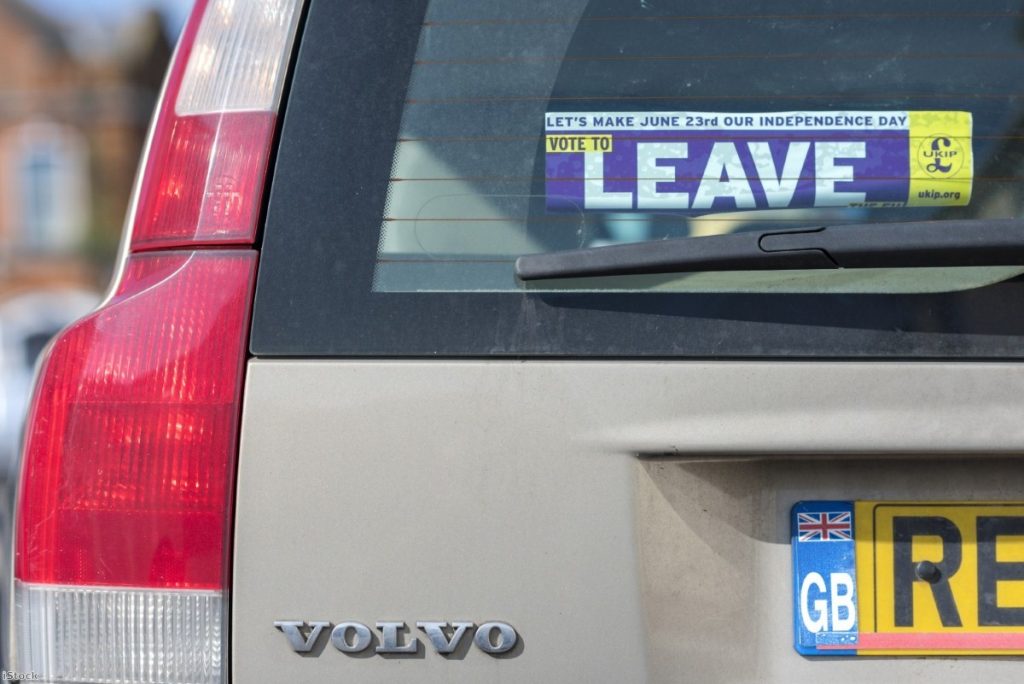By Matt Thrower
How did you choose which way to vote in the Brexit referendum? It contained a host of complex, interconnected issues re-framed as a binary choice. A silly simplification that's symptomatic of so many problems in modern politics. Nevertheless, the choice was before us and we had to pick sides on the most important issue in a generation.
For many Britons it was a hard choice. The potential costs of leaving were clear and we've repeated and expounded on them at length on this site since the vote. On the other hand, there are few genuinely ardent Europhiles on these shores. Centuries of island isolationism has seen to that. And it's hard to get excited about a political project with so many clear and dangerous flaws. With its focus on free markets, the debacle of the Euro and its shabby treatment of debtor nations like Greece, the European Union makes itself a hard thing to love.
What swung it for me was a sudden, clear realisation about not what leaving might cost, but what it might gain us. Control, said the leave campaign, a return to good, old-fashioned British sovereignty. Fine words, calculated to grow the stout oak of patriotism in even the faintest of hearts, and hard to argue with. Yet there's no need to argue because, as with much of the leave campaign, the question is wrong. The real question is what we would do with all that good old-fashioned British sovereignty once we had it.


Both campaigns were negative in tone. Leave painted Remain as "project fear" but in truth their own was also based on scaremongering. Chief among the bogeymen offered to the electorate was immigration. So after the result politicians presumed, not unreasonably, that a brake on this was top of most leaver's wishlists.

Now, immigration is an important topic which deserves more nuance than partisans on either side of the debate tend to give it. So let's skip over the pros and cons of immigration and go straight to hard facts. Britain has a serious shortage of skilled workers. A staggering 96% of acute hospitals can't get enough nurses to cover day shifts. A range of sectors, including education, are struggling to find STEM graduates. The Recruitment and Employment Confederation says that skills shortages in construction and engineering are "critical".
We need people to fill these roles to have both functional public services and a healthy economy. These are problems right now: we can't just hope to train up enough British workers in time. And even when we could, it's a problem that's going to get worse. With an ageing population, Britain needs more young workers to keep everything running smoothly. Continued immigration is the only possible solution to the issue. A break is the last thing we need.

Some will no doubt accept this and say that skilled people aren't the problem. Again, this is straying into controversial territory. Again, though, there's no need to fall back on opinion and uncertainty. Existing EU rules allow states to deport immigrants after six months if they become a welfare burden. Something the leave campaign oddly forgot to highlight while warning voters of the dangers of unchecked migration.
It's clear, then, that we don't need more control on immigration than we have. What other gifts does leaving have in its red white and blue bag of British sovereignty? The chance to form our own trade deals rather than negotiating them via the EU was another key hope. Yet this is misleading. Even if we could hope to agree some advantageous new deals in time, the actual gains are little or nothing. We already have an advantageous trade deal with our closest geographic partners, inside the EU. Anything else we negotiate simply replaces the trade we already enjoy.
A few principled leave campaigners disliked the lack of sovereignty on point of principle. They railed against the unelected elites that run the EU. This might be fair if they also railed against the unelected elites that run Britain. The Lords, the judiciary, first past the post, the hideous cabal of mendacious media barons that control most of the national press. We do, at least, get to vote for the MEPs who elect the European Commission's President, which is more than you can say about Rupert Murdoch.
Related to this was a desire to see us free of the more burdensome aspects of EU law. Frustration with red tape is understandable, although wanting to eject human and employee rights is less so. But red tape often exists for good reason. It's easy to laugh at a law that demands we print "contains fish" on the packaging of actual fish. But consider: how can you draft tight legislation to protect people with fish allergies which excludes whole fish? And surely, now, in the awful aftermath of the tragedy of Grenfell Tower, the cost of rolling back red tape just for the sake of it is clear?
There we have it. The absolute best outcome we can hope for on leaving the European Union is no meaningful change at all. We can't afford to restrict immigration or to reduce regulation. We will still suffer under undemocratic elites. Anything else we achieve will be nothing but a replacement for things we already have. For this we are risking our entire economy, our place on the world stage and a raft of advantages enjoyed by our citizens. That's what made me decide to back Remain. Whatever the flaws of the European Union, in leaving Britain stands to gain little and to lose almost everything.
Matt Thrower is a technology and gaming journalist who finds those topics stray into politics far more often than expected.
The opinions in politics.co.uk's Comment and Analysis section are those of the author and are no reflection of the views of the website or its owners.









